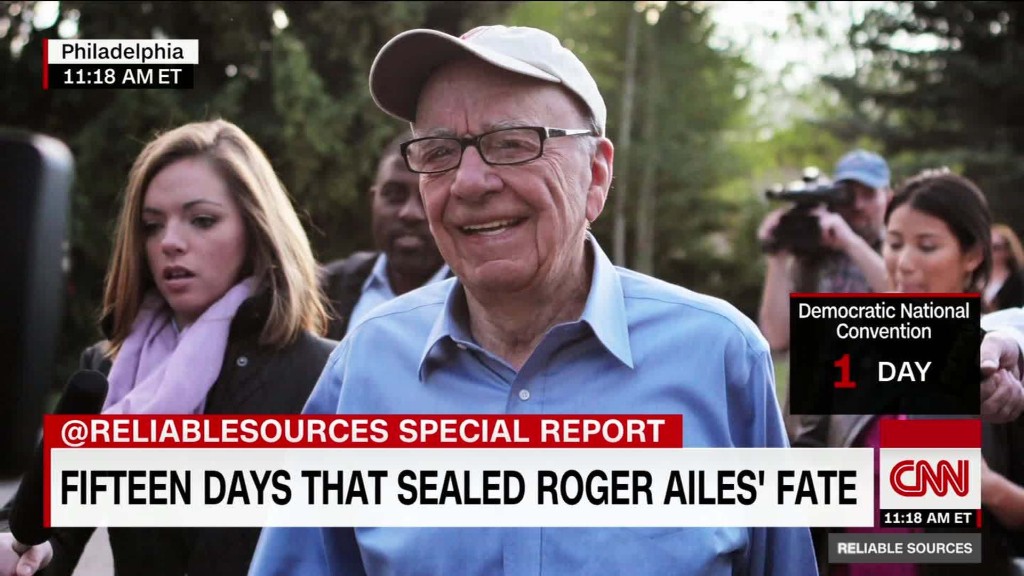
Anyone exposed to the entertainment industry long enough has the stories, or has heard them: female talent, subordinates, or anyone perceived as wanting a job or eager to keep one, being taken advantage of; inappropriate statements, voiced without fear of reprisal; management looking the other way, particularly if the responsible party is seen as crucial to the bottom line.
The allegations of sexual harassment against now-former Fox News chairman and CEO Roger Ailes are still just that. But even before they are adjudicated they are a reminder of the attitudes that held sway in the industry in the "Mad Men" era in which Ailes came of age professionally, and that have taken far too long to erode.
Other reminders came in the response to Gretchen Carlson, the former Fox host who filed the suit against Ailes that eventually led to his departure. Ailes' team led an effort to discredit her, questioning why she would write pleasant notes to her purported harasser. A number of Fox personalities expressed support for Ailes and, before other accusers came forward with their own stories about Ailes' behavior, said he could never have done anything like what Carlson said he had.
Having begun covering television not long before the Clarence Thomas confirmation hearings, those stories told by the other women who spoke out against Ailes in particular brought up for me others that were gossiped about, and sometimes witnessed, during that period.
Related: Roger Ailes is out -- now come the aftershocks
That included a moment in the early 1990s when an executive slipped a mortified employee his room key during an event held at a hotel. And the TV show staffer who said the star told her a promotion wouldn't be forthcoming because she hadn't slept with him. Rather than complain, she eventually found another job.
Some men in powerful jobs were fairly brazen in bragging about their sexual conquests, including of talent they employed. The Don Drapers among them, with a combination of charm, money and status, never seemed to have much difficulty finding willing partners.
Yet what was seldom mentioned -- or even considered -- was what "willing" really meant, what the unequal power structure might mean for women who dared to say no.
Obviously, not every top executive, producer or performer behaved this way. But there seemed to be a tacit understanding among those who did that boorishness wouldn't carry consequences, and little evidence of concern that the women involved would have any recourse.
Change has come slowly in terms of sensitization to sexual harassment -- and fear of potential repercussions. But there has been a generational shift, bringing in leaders who are, even if not conscious of and concerned about harassment on a purely selfless level, at a minimum more cognizant of preserving their careers and avoiding lawsuits. And modern media conglomerates are less likely to see hefty cash settlements as just another cost of doing business.
Related: Roger Ailes, Republican power player
Notably, Ailes, 76, has relatively few contemporaries in terms of the exalted position he until recently occupied. Unless they own the company -- a la his 85-year-old boss, Rupert Murdoch -- few executives hang on to power for as long as Ailes did.
In a business obsessed with youth, revolving doors swing and new decision makers are ushered in. Movies and TV shows designed for younger demographics foster a tacit ageism that tends to sweep out the old guard -- often callously -- along with some of its mores.
From that perspective, the response to the story would appear to represent progress, with necessary disclaimers. As detailed accounts in New York magazine and New York Times made clear, Fox News appeared to foster an environment where sexual harassment was tolerated, making women understandably reluctant to come forward. Each new revelation raises questions about who knew what -- or chose not to.
At the same time, the entertainment industry and press are more aware of such accusations, in contrast to the days when they were ignored or reflexively dismissed. Slate described the Ailes allegations as a "post-Cosby moment" -- referring to the more serious charges against septuagenarian star Bill Cosby -- "in which the testimonies of a powerful man's alleged victims are taken more seriously by the mainstream media."
As always, symbolic events don't always present the full picture, and one case shouldn't be construed as suddenly stamping out abuses of power that have persisted for years. But as these stories have unfolded, there is reason to hope the "Mad Men" mentality has receded further into the rear-view mirror.


